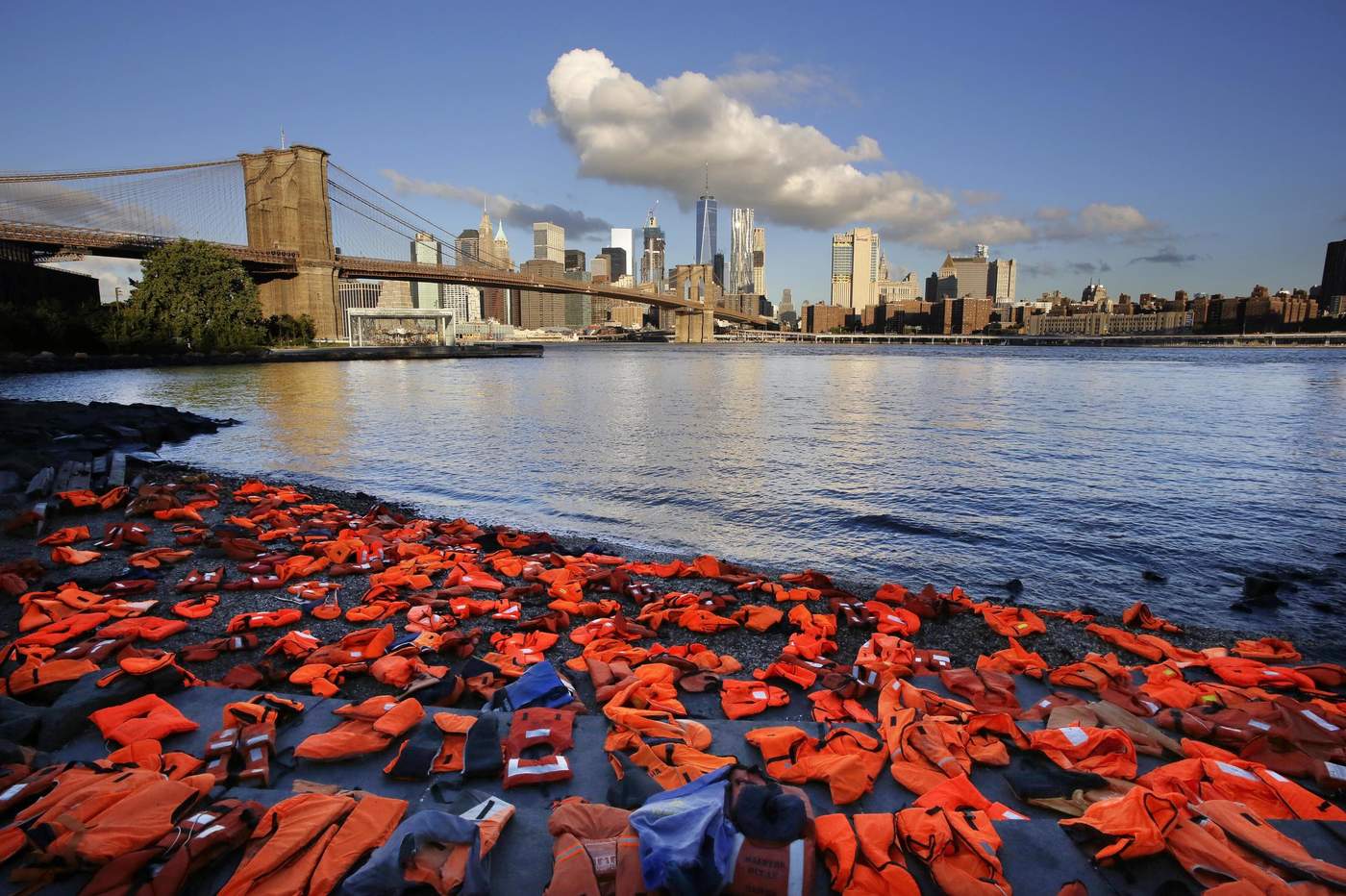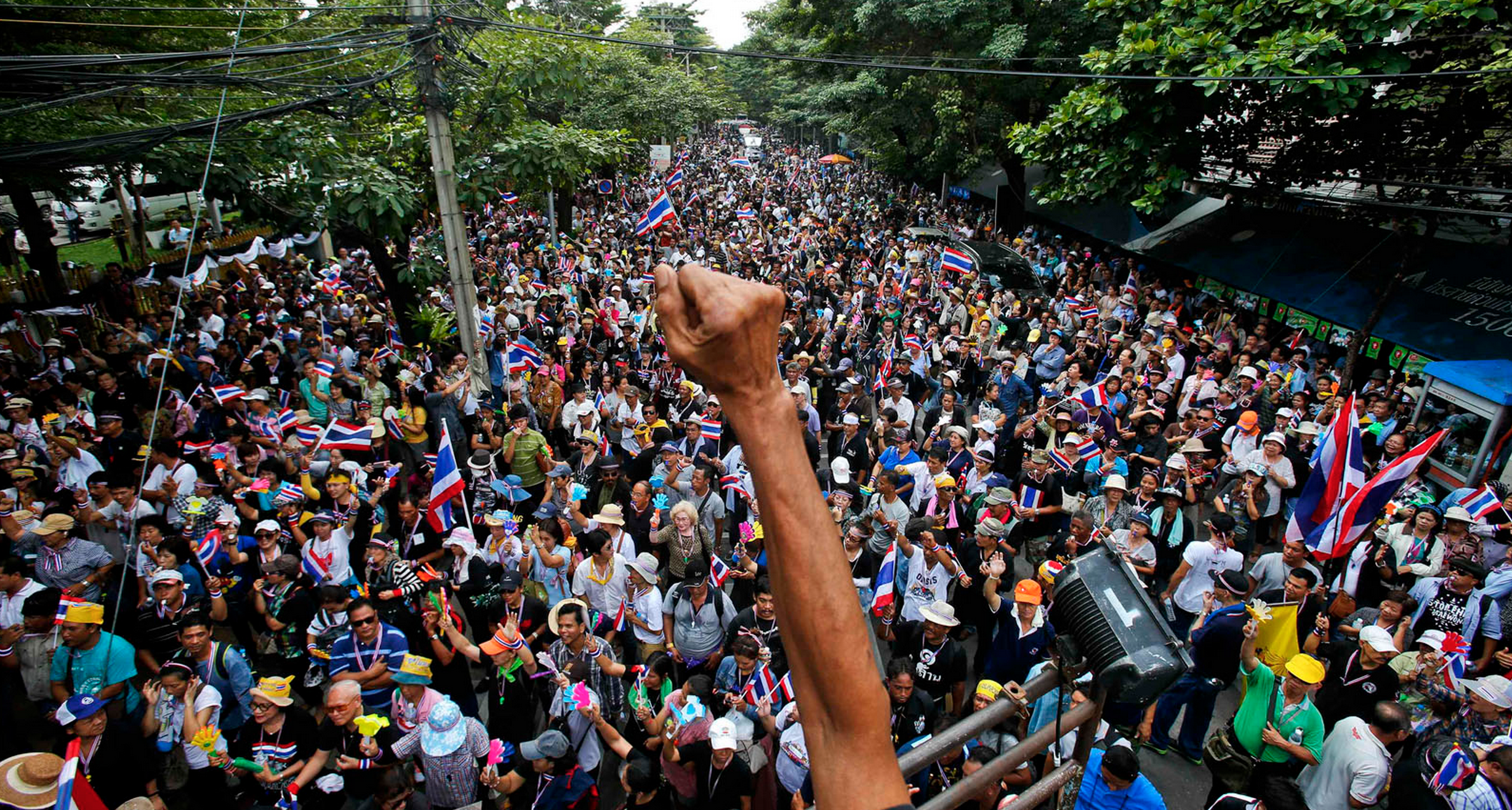By Rafat Ali
The year 2016 will go down as the seminal year where travel — the voluntary movement of humans from one place to another — became a key element of every major flashpoint in the world.
Every global fault line in 2016, every big clash of ideas, every big conflict that is taking away human lives today, every geopolitical upheaval, every global quality of life issue can be traced back to one common thread: travel, or the free movement of people through borders. It lies in the center of these issues.
Every major flashpoint in the world has geopolitical implications, and every geopolitical issue has travel (or the lack of it) at the heart of it: Zika, Brexit, Turkey, Bangladesh, Orlando, Syria, the Brazil Olympics, Cuba, Iran, tourism, oil prices, global warming, immigration, and ISIS. Even non-geopolitical issues like the rise of cities, the rise of Uber and Airbnb, the overwhelming digital information overload and its effect on human brain, the lack of vacations, and the woeful state of maternity leave in U.S. are all affected by travel.
Everything affects travel and travel affects everything. Travel is the global crucible for everything. It is where the largest consumer and tech trends first meet and are quickly tested. Everything converges in travel.

In the world of politics, there is little discussion of the economic and social benefits of travel. Photo: AP Photo/David Goldman
And yet, travel is one of the least important items in the policy agendas of governments around the world. Every year, CEOs decry how little respect their industry gets from the technocrats and politicians. Every major election, every major political candidate platform around the world pays little attention to the travel industry as an economic engine, as a force of soft power in the world.
In the current U.S. presidential elections, check the transcripts of the candidates’ speeches and the travel industry won’t figure even once in any of them — at least not in a positive sense. If anything, stopping the movement of people certainly does feature prominently.
Travel is one of the least important items in the policy agendas of governments around the world.
When investor Marc Andreessen wrote five years ago that “Software is eating the world,” a million stories and social media posts followed. And he is right: a seminal shift is happening. Tech is eating the world, that much is true. It now intersects and underlies most of the big sectors of the world. So much so that it is hard to separate tech from the rest of the world. Tech is driving the future of the world.
But no one says “travel is eating the world.” Except that it already has. The democratization of global travel is one of the biggest forces that is changing everything we know about how we grow up, live, work, and die. It is now the world’s largest sector if you add the sum of all direct, indirect, and induced effects of all of the subsectors in it.
Travel and technology together are the most disruptive forces on the planet right now.
The delta between what the most progressive expression of human curiosity begets and the attention the travel industry gets in the larger world is vast. How did this disconnect happen? The disconnect happened because the travel sector has marketed itself as a leisure industry, sitting in a bubble of its own creation, which means it is optional and disposable.
Anyone who takes a vacation knows it’s so far from disposable. It’s how we remain creative, smart, vital, and energized. But the travel sector suffers from the malaise we see elsewhere.
When the travel industry assures you that Egypt is safe, without disclosing that the country is in a generational turmoil that won’t get solved for years to come, what they really want you to do is put fingers in your ears and shout “la la la la” while sitting in their resorts. When the travel industry assures you that the cerulean waters around its resorts in Maldives are safe, and forgets to mention that the islands are going to disappear under water in a few years from now, or that there was a coup in the country two years ago and the democracy activists are still protesting a few miles away, do you wonder why the travel industry gets no respect from the larger world?
The disconnect occurs when, in 2016, the travel industry still peddles cliched colonial visions of the giant continent of Africa to western audiences. Walk down the “Africa” aisle at the New York Times Travel Show and you will forget that there are actually 54 different countries for travelers to visit, each with very different things to offer. And then the industry pretends to be surprised when Ebola in three countries in one small part of West Africa scares people from traveling in the other 51 countries on the African continent.

Egypt, like other countries involved in the Arab Spring, has seen it's tourism industry turned on its head. Photo by: AP Photo/Nariman El-Mofty
When Nick Varney, the CEO of the world’s largest attractions company, Merlin Entertainment, proudly declares at a conference two days after the Brexit vote that he is happy with the vote results because the pound is at an all-time low, meaning more locals will stay local and come to his attractions, that is, at best, opportunism and, at worst, monumental short-term-ism. He goes on to declare his dismay that the British government did not consult the travel industry at all when it increased minimum wages in the country, and he sees no irony in why the travel industry gets no seat at the table when it matters.
The disconnect happened because the executives running many parts of the travel industry do not look like the increasingly intermingled and diverse world of both inbound and outbound travelers around the world. With some exceptions, the industry at top levels is run by white men, and if you check the U.S. Federal Election Commission’s donations database (which is public), you will clearly see the industry has supported Republican candidates and Super PACs by an overwhelming majority in the past election cycles, when the act of travel itself is as progressive as it gets.
The executives running many parts of the travel industry do not look like the increasingly intermingled and diverse world of both inbound and outbound travelers around the world.
This year is different, mainly because one of the candidates is so utterly repulsive that minor differences on wage or health insurance are not big enough issues to keep them from reaching across partisan boundaries.

A traditional tourist photo-op in "Africa." Photo Rod Wadington / Flickr
Still, in the U.S., travel lobbying organizations have often been on the wrong side of history. Take the American Hotel & Lodging Association, for example. It has, time and again, fought the minimum-wage increase movement sweeping the country. It even fought the American With Disabilities Act of 1990. Then, take Airlines for America, the lobbying organization that has fought an Open Skies policy with an intent to block the Gulf airlines, many of which are consumer favorites, from increasing their services to America. And then they wonder why they get so much hate from the consumers.
The CEOs of major corporations rarely take public stances on political issues, but for a subject such as travel, we expect more.
Which hotel CEOs do you know of who have spoken up about the European immigrant crisis and offered the incoming Syrian refugees entry-level jobs at their hotels as an entry point into a decent life in Europe? Which travel and tourism CEOs have spoken out against France’s increasing intolerance, and against the latest ban against Muslim women wearing Burkini swimwear at the beach? Why isn’t this connection to travel in their minds?
The closing off of minds to any stripes of people has a direct effect on the business of travel, and the liberation inherent in the promise of travel. Good luck attracting more Arab or Muslim tourists, France!

An Orthodox blessing amidst unrest in Ukraine. Photo: Jim Forest / Flickr
Listen to what the larger consumer behavior says instead of fighting the new players who are getting rapid adoption, and maybe you will learn and change enough to future-proof yourself as a result. There is some hope that some companies are seeing the larger connections that travel has with the rest of the world. Companies such as Expedia, Momondo, and Airbnb are talking about travel in a bigger way, and are not afraid to lean into the socio-political issues of the larger world they exist in.
A wholesale change in mindset is needed on how travel is structured and marketed, enmeshed and embedded in all the glorious imperfections of the planet.
Companies such as Expedia, Momondo, and Airbnb are talking about travel in a bigger way, and are not afraid to lean into the socio-political issues of the larger world they exist in.
The geopolitical realities of our world are worth embracing by the travel industry, instead of ignoring them or, worse still, wishing them away. And even more so, travelers will reward the industry for it by traveling more, by being more aware of the world and travel’s key place in it, rather than staying in isolationist bubbles for people to indulge in when they need an escape once in awhile.
Stop calling the travel sector “resilient.” Let it be.
Travel will be bigger and better for it.

The migrant crisis stretches from Syria to the UN in New York City. Photo: AP Photo/Mark Lennihan
Related
The Rise of the Immersive Traveler in a Time of Global Uncertainty
"Despite perceived travel risks and uncertainty about the global state of affairs, travelers are growing savvier and more resilient than ever. There’s a new kind of geopolitically-aware traveler who remains determined to make the most of the world, live without fear to have deeper, more immersive experiences."
Iceland and the Trials of 21st Century Tourism
"Once, Iceland’s top industry was fishing. Then, heavy industry took over. Now, tourism drives economic growth in Iceland. What are the challenges that increased tourism creates for a unique nation like Iceland?"
Interview: UNWTO Secretary-General on the World-Changing Power of Travel
"Tourism and travel together has proven to be such a resilient industry that nothing is going to stop it. It may be halted in certain destinations for a short period of time. But in the immediate and long term it comes back even stronger than it was."
Why We Travel
"The traveler’s boast, sometimes couched as a complaint, is that of having been an eyewitness, and invariably this experience — shocking though it may seem at the time — is an enrichment, even a blessing, one of the life-altering trophies of the road."
About Skift
Skift is the largest industry intelligence platform providing media, insights, and marketing to key sectors of travel.
Read more about what we do here.


